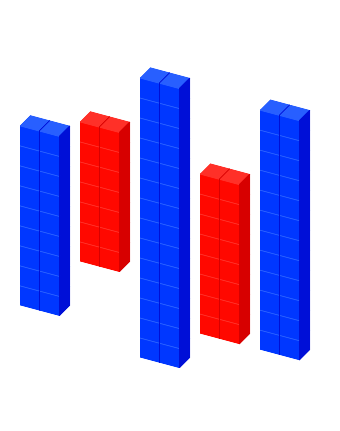The USA’s proprietary trading firms are a key part of the financial markets. They use their own money to make profits with smart trading plans. They also use the latest technology and know the markets well.
These firms are important in today’s financial world. They help bring new ideas and money to different trading places. From Chicago to New York, they use complex plans and models to keep up with fast-changing markets.
Good proprietary trading firms stand out because they manage risks well. They have the latest tech and really understand the markets. They can quickly change their plans and come up with new ways to trade.
Key Takeaways
- Proprietary trading firms invest their own capital to generate profits
- Advanced technology and algorithmic strategies are critical for success
- Geographic clusters like Chicago and New York dominate the prop trading scene
- Risk management is a fundamental aspect of proprietary trading
- These firms play a significant role in market liquidity and price discovery
Understanding Proprietary Trading and Its Role in Financial Markets
Proprietary trading is a smart way for firms to make money in financial markets. They use their own money to earn profits. These firms have changed how we invest by using new tech and smart strategies.
Trading has changed a lot in recent years. Now, firms use data to make quick and smart choices. This is thanks to something called quantitative trading.
The Transformation of Trading Strategies
Proprietary trading has grown thanks to new tech. Some big steps include:
- Introduction of computer-based trading platforms
- Advanced algorithmic trading techniques
- Real-time data analysis capabilities
- Machine learning integration
Core Components of Successful Trading Operations
Good proprietary trading firms have a few key things:
- Sophisticated technology infrastructure
- Robust risk management protocols
- Skilled quantitative trading experts
- Adaptive trading strategies
Risk Management in Modern Trading
Keeping risks low is key for trading success. Firms use smart plans to protect money and make more. They use advanced math and watch things closely in real time.
“In quantitative trading, managing risk is not just a strategy—it’s a survival mechanism.” – Financial Markets Expert
By using the latest tech, math, and smart ideas, trading firms are changing the investment world.
Leading Proprietary Trading Firms in Chicago

Chicago is a big name in the world of proprietary trading firms. It uses its rich financial history and great location to its advantage. The city is a key place for algorithmic trading, home to some of the most advanced proprietary trading firms in the U.S.
Chicago’s trading scene is special because of a few things:
- It’s close to big exchanges like the Chicago Mercantile Exchange
- It has strong tech support
- It has a lot of smart traders
- It’s known for derivatives and futures markets
The top firms in Chicago are known for their smart trading strategies and tech. They work in different areas, from fast trading to complex derivatives.
| Firm Name | Trading Specialty | Key Strength |
|---|---|---|
| Peak6 Investments | Options Trading | Advanced Algorithmic Strategies |
| Citadel Securities | Market Making | High-Frequency Trading |
| DRW Trading | Derivatives | Quantitative Research |
Chicago’s proprietary trading firms keep improving financial technology. They create new ways to trade, making a big impact worldwide. Their focus on algorithmic trading and complex models keeps Chicago leading in finance.
New York’s Elite Prop Trading Establishments
New York City is the heart of financial innovation. Proprietary trading firms here create a world of advanced investment strategies. The Manhattan financial district is home to some of the most advanced high-frequency trading operations globally.
These firms in New York use the latest technologies for complex trading strategies. They stand out for their creative approaches to the financial markets.
Manhattan’s Trading Powerhouses
The top proprietary trading firms in Manhattan are known for:
- Creating advanced algorithmic trading systems
- Implementing top-notch risk management
- Using the latest computational tools
Wall Street’s Most Influential Prop Firms
Leading proprietary trading firms in New York focus on different market areas. Each brings its own strengths to the financial world.
| Firm Specialty | Trading Focus | Technology Edge |
|---|---|---|
| Quantitative Strategies | Equity Markets | Machine Learning Algorithms |
| High-Frequency Trading | Derivatives | Low-Latency Execution |
| Statistical Arbitrage | Fixed Income | Advanced Data Analytics |
Trading Technologies and Infrastructure
New York’s proprietary trading firms spend a lot on technology. High-frequency trading needs precision in milliseconds. This drives constant innovation in finance.
The competitive world of proprietary trading pushes for new tech. New York is a key place for financial technology growth.
High-Frequency Trading Giants on the East Coast

The East Coast is the heart of high-frequency trading. New York and New Jersey are home to top firms. These firms use advanced tech to make fast trades, often in milliseconds.
What makes these firms stand out includes:
- Super-fast computers that can handle thousands of trades per second
- Being close to major stock exchanges
- Advanced algorithms for trading
- Strong risk management systems
Success in high-frequency trading needs big investments. Microseconds can mean millions of dollars in profit or loss. Top firms spend a lot on:
- Direct market data feeds
- Fast network connections
- Top-notch computer hardware
- Smart machine learning algorithms
Here are some top high-frequency trading firms on the East Coast:
| Firm Name | Location | Trading Strategy |
|---|---|---|
| Virtu Financial | New York City | Market Making |
| Two Sigma | New York | Quantitative Trading |
| Citadel Securities | Chicago/New York | Multi-Asset Low-Latency Trading |
High-frequency trading makes markets more efficient. But it also raises questions about fairness and market balance. Watchdogs keep a close eye on these practices to ensure fair play.
Quantitative Trading Specialists in the USA
Quantitative trading is where advanced math meets high-tech and financial smarts. These firms use complex models to turn market data into money-making chances.

It’s changed finance by making decisions based on data. Quant firms use smart algorithms to spot trends, find market gaps, and trade fast and accurately.
Mathematical Models and Trading Strategies
Good quantitative trading needs smart math:
- Statistical arbitrage techniques
- Machine learning predictive models
- Stochastic calculus algorithms
- Advanced regression analysis
Technology Stack Requirements
For automated trading, you need top-notch tech:
| Technology Component | Primary Function |
|---|---|
| High-Performance Computing | Real-time data processing |
| GPU Acceleration | Complex mathematical computations |
| Low-Latency Networks | Rapid trade execution |
Team Structure and Expertise
Quant firms need a team with many skills:
- Mathematicians and physicists
- Computer scientists
- Financial analysts
- Machine learning engineers
With these skills together, quant firms create new strategies that beat old ways of investing.
Market Making and Liquidity Providers

Market making is key in proprietary trading firms, keeping markets stable. These firms are crucial for smooth trading. They always offer buy and sell prices for financial items.
Market making firms use smart strategies to make money and keep markets liquid:
- Maintaining tight bid-ask spreads
- Executing rapid trade transactions
- Managing inventory risk
- Utilizing advanced algorithmic trading technologies
Good market makers use top tech to quickly understand market changes. High-frequency trading platforms help them make fast, smart choices. This reduces losses and boosts trading speed.
Market making firms face tough rules and must manage risks well. They focus on:
- Electronic trading platforms
- Quantitative analysis
- Real-time market data processing
- Advanced mathematical modeling
The market keeps changing, pushing market making firms to stay ahead. Their role in keeping markets liquid is vital for a healthy financial system.
Algorithmic Trading Pioneers in America
Algorithmic trading has changed the financial markets a lot. It uses smart computer methods to make trades fast and accurate. This new way of trading is key to modern finance in the U.S.
Leading companies in algorithmic trading have come up with new ideas. They mix math models with strong computers to make intelligent trading systems. These systems can quickly understand market changes.
Breakthrough Innovations in Trading Algorithms
The best algorithmic trading firms focus on a few key areas:
- Machine learning-powered predictive models
- Real-time market sentiment analysis
- Advanced statistical arbitrage techniques
- Neural network-based trading strategies
“The future of trading is not about human intuition, but computational intelligence.” – Financial Technology Expert
Critical Infrastructure for High-Performance Trading
Speed is key in algorithmic trading. Top firms spend a lot on special tools, including:
- Ultra-low latency network connections
- Custom-designed hardware accelerators
- High-performance computing clusters
- Geographically distributed data centers
Trading has moved from simple rules to complex AI systems. These systems can quickly adjust to market changes. Algorithmic trading is getting even smarter as it keeps evolving.
Statistical Arbitrage Focused Firms

Statistical arbitrage is a complex way to trade that uses math to find market gaps. These firms use smart algorithms to spot small price differences in different financial products.
What makes these firms stand out includes:
- Using advanced machine learning techniques
- Creating complex math models
- Having high-speed trading setups
- Executing trades quickly
Top firms in statistical arbitrage aim to build strong trading systems. They can quickly analyze huge amounts of data. They use math to guess market trends based on past prices and how different securities relate to each other.
These firms need a lot of tech to succeed. They must invest in:
- Strong computers
- Fast internet
- Tools to process data fast
- Tools for real-time market analysis
But, there are challenges too. The market is getting more competitive, and machine learning is always getting better. To stay ahead, firms must keep improving their trading methods.
“The future of statistical arbitrage lies in adaptive algorithms that can quickly respond to market dynamics.” – Financial Technology Expert
Career Opportunities in Proprietary Trading Firms
Proprietary trading firms offer exciting and challenging careers for those in finance. They provide paths that mix advanced tech, financial knowledge, and strategic thinking. This makes for a unique career journey.

Those interested in these firms can find many career paths. These paths value analytical skills and math precision.
Required Skills and Qualifications
To succeed in quantitative trading, you need a strong skill set. This includes:
- Advanced mathematics and statistical analysis
- Programming skills (Python, C++, R)
- Deep understanding of financial markets
- Great problem-solving abilities
Compensation Structures and Benefits
Proprietary trading firms offer great pay and benefits. These include:
| Compensation Component | Typical Range |
|---|---|
| Base Salary | $80,000 – $150,000 |
| Performance Bonus | 20% – 100% of base salary |
| Profit Sharing | 5% – 25% of trading profits |
Career Advancement Paths
Career growth in quantitative trading follows a clear path:
- Junior Quantitative Trader
- Quantitative Research Analyst
- Senior Trader
- Trading Strategy Manager
- Head of Trading Operations
Continuous learning and adaptability are key for success in these firms.
Technology Infrastructure and Trading Platforms

Proprietary trading firms use the latest technology to stay ahead in financial markets. Low-latency trading is key in today’s algorithmic trading. It drives big investments in fast computing systems.
Successful trading platforms have a few main tech parts:
- High-performance computing systems
- Ultra-fast network connections
- Sophisticated proprietary trading platforms
- Real-time data processing capabilities
Colocation services are crucial for algorithmic trading. They help firms cut down on network delays. This lets them make trades faster.
Cloud computing and artificial intelligence are changing trading tech. Machine learning algorithms look through huge data sets. They find patterns that humans might miss. These tools help in managing risks and creating better trading plans.
The tech race in proprietary trading keeps improving how we analyze markets and make trades.
Top prop trading firms see their tech as a key advantage. It’s not just support; it’s what sets them apart in today’s fast markets.
Regulatory Framework and Compliance Requirements
Proprietary trading firms face a complex world of rules. These rules shape how they work and manage risks. The financial markets need strict rules to stay stable and keep investors safe.
The Securities and Exchange Commission (SEC) sets clear rules for these firms. These rules help make the markets more open and reduce big risks.
SEC Regulations and Guidelines
Important rules greatly affect how these firms trade. The Code of Federal Regulations gives specific rules for prop trading firms. Key rules include:
- Volcker Rule limits on risky bets
- Rules on how much capital they need
- Rules for reporting and sharing information
- Rules on how much they can trade
Risk Management Protocols
Good prop trading firms use strong risk management plans. These plans include:
- Advanced risk models
- Systems to watch trades in real time
- Tools to stop bad trades
- Tests to see how they handle tough times
Good risk management is more than following rules. It’s about making smart trading plans that keep the firm and investors safe.
Investment Strategies and Trading Approaches
Proprietary trading firms use advanced strategies to make money in the market. Automated trading has changed the game, allowing traders to work fast and accurately.
Modern trading includes:
- High-frequency trading algorithms
- Statistical arbitrage techniques
- Quantitative momentum strategies
- Machine learning-driven market prediction
High-frequency trading is key today. It uses smart computers to quickly spot and make trades. This way, traders can make money from small price differences.
| Strategy Type | Key Characteristics | Typical Performance Range |
|---|---|---|
| Market Making | Provide liquidity, capture spread | 1-3% monthly returns |
| Statistical Arbitrage | Exploit pricing inefficiencies | 2-5% monthly returns |
| Momentum Trading | Follow market trends | 3-6% monthly returns |
Top trading firms keep improving their strategies. They use smart math and tech to stay ahead. This helps them succeed in fast-changing markets.
Performance Metrics and Success Indicators
Evaluating proprietary trading firms needs a detailed look. It’s not just about making money. Statistical arbitrage and other complex strategies require specific metrics to show how well a firm does.
Investors and analysts use key indicators to judge a firm’s success. These metrics help understand a firm’s trading skills and how it handles risks.
Critical Performance Benchmarks
- Sharpe Ratio: Measures risk-adjusted return
- Maximum Drawdown: Evaluates potential capital loss
- Win Rate: Percentage of successful trading strategies
- Profit Factor: Total gross profits divided by total gross losses
Risk-Adjusted Returns Analysis
The best proprietary trading firms aim for consistent returns with low risk. They use advanced statistical arbitrage. This balances gains with careful risk management.
Capital Efficiency Evaluation
Top firms stand out for their capital efficiency. They use their capital wisely by:
- Reducing unnecessary costs
- Using smart risk management
- Creating advanced trading algorithms
- Being flexible with capital
Knowing these metrics gives deep insights into professional trading. It shows the complex strategies that lead to success in finance.
Conclusion
The United States has a complex world of proprietary trading firms. These firms are always finding new ways to use technology and math to make money. They look at the market in ways others can’t.
These firms are key to keeping markets running smoothly. They work hard in places like Chicago and New York. They use smart algorithms and careful risk management to change how we trade.
Quantitative trading will become even more important in the future. New tech, machine learning, and better data analysis will help firms make smarter trades. This shows how vital these firms are for a healthy market.
As markets get more connected and tech-savvy, these firms will lead the way. They can quickly adjust and use complex strategies. This makes them crucial in the global financial world.

